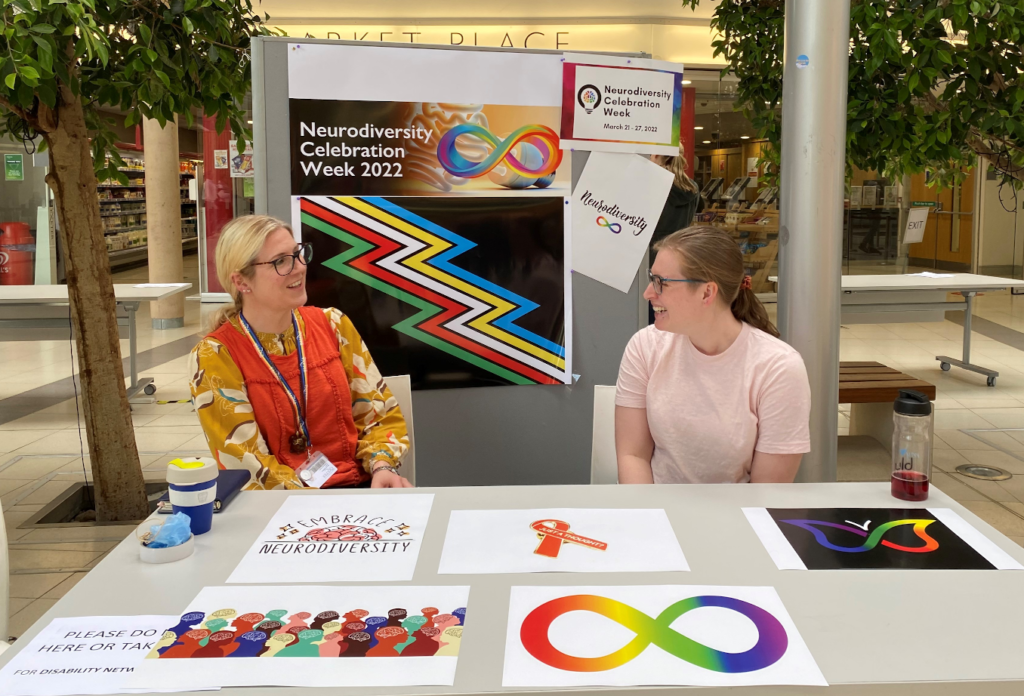One of our Physics Inclusion Group members, Rachel Lennon, was recently involved in organising Exeter University’s Neurodiversity Celebration Week which took place from the 21st to the 27th of March this year. Here Rachel tells us about the event, why it is important to celebrate Neurodiversity, and how you can find out more information.
As co-chair of the Disabled and Chronically Ill Network and a multiply neurodivergent person, I organised a programme of online events with the help of Lena Worwood (EDI Advisor), Rachel Griffiths (Business School EDI Manager) and Dr Ioanna Kapantai (Lecturer in Psychology). Our event was the first time the University had marked the week!
We wanted to showcase work happening across the University and the UK that aims to support neurodivergent people, particularly students and staff members at higher education institutes. We also wanted to make sure we focused on celebrating the work of neurodivergent researchers by having them speak about their research on neurodiversity – we believe in the statement ‘nothing about us without us’!
It is imperative that we do not let people of the dominant neurotype talk over us: positive neurodivergent perspectives are so important to showcase because they allow us to produce research that is informed by the real needs and interests of neurodivergent people and because it allows us to create environments that are more welcoming and accommodating of difference.

Our two keynote speakers were external expert neurodivergent academics Dr Steven Kapp (University of Portsmouth) and Dr Chloe Farahar (University of Kent). We also had presentations from university colleagues Dr Layal Hakim (Mathematics) and Dr Ioanna Kapantai (Psychology) about the work they are doing to improve the experience of neurodivergent students at our institution.
Sumeiyah Koya from the ReASoN Network, a group that started as a research collaboration between Exeter and Bristol universities, also presented some of the preliminary findings of the network’s study regarding the experiences, support priorities and research priorities of neurodivergent students in higher education in the UK.
We have a website dedicated to the week where the recordings of the talks can be accessed (NCW2022). The Disabled and Chronically Ill Network has also set up a new Team where everyone is welcome to come and discuss neurodiversity. We hope to use the Team as a forum for people to ask questions, share ideas, and get neurodivergent perspectives on their work to inform their practice – email DisabilityNetwork@exeter.ac.uk for a joining link.

